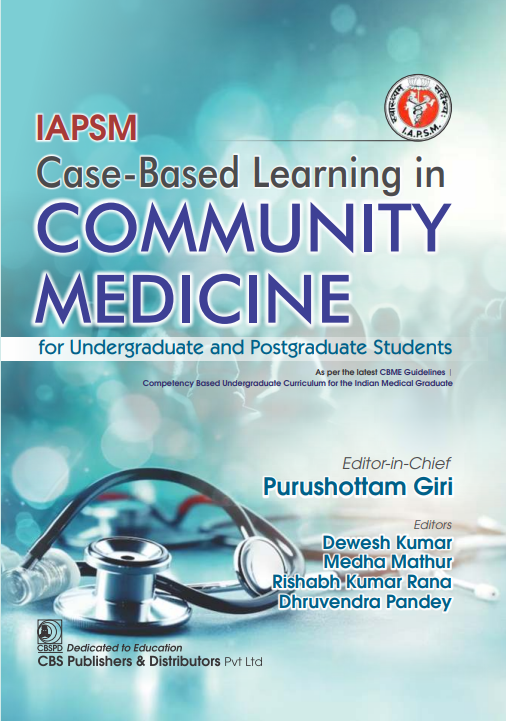Salient features of the book
- Interactive Learning Approach: The book emphasizes an interactive and dynamic approach to learning community medicine through real-life case studies.
- Practical Application: Each case study presents a practical scenario from the field of community medicine, bridging the gap between theory and real-world practice.
- Critical Thinking: The book promotes critical thinking skills as readers analyze cases, make diagnoses, and formulate appropriate interventions based on the given information.
- Problem-Solving Skills: Readers develop problem-solving skills by engaging with complex cases that require consideration of various factors such as social determinants of health, cultural context, and resource limitations.
- Multi-Disciplinary Approach: Cases often require collaboration across disciplines, fostering an understanding of the importance of teamwork and interdisciplinary cooperation in community healthcare.
- Cultural Sensitivity: Case studies often touch on cultural and social aspects, helping readers develop cultural sensitivity and awareness in delivering community healthcare services.
- Patient-Centered Care: By analyzing cases from a patient-centered perspective, readers learn to tailor interventions to the unique needs and preferences of individuals and communities.
- Skill Progression: Cases are structured to progressively challenge readers, starting with foundational concepts and gradually advancing to more complex and nuanced scenarios.
- Self-Directed Learning: The case-based approach encourages self-directed learning, enabling readers to explore topics at their own pace and depth.
- Discussion and Reflection: Each case study is followed by discussions, questions, and prompts that promote reflection, encouraging readers to analyze their decision-making process.
| Specifications |
Descriptions |
| ISBN |
9789354668111 |
| Binding |
Paperback |
| Subject |
Community Medicine |
| Pages |
184 |
| Weight |
0.4 |
| Readership |
Undergraduate and Postgraduate Medical Students |



.png)